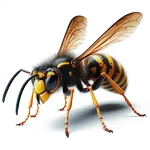Questions answered about wasps - Page:3
Do wasps swarm?
Wasps and Hornets do not swarm. If you have a swarm of insects in your garden or roof (more precisely, in your chimney), this is a honey bee swarm.
Wasps rarely nest in chimneys.
Wasps do swarm feed and will report the location of a food source to their nest, recruiting help to overcome competition from other wasps for the food.
Only honey bees swarm. Honey bees swarm when the nest/hive has grown too large for their home. Approximately half the colony leaves the nest with the queen, and they search for a new home. The remaining bees will raise new queens in the original nest, but only one will survive to take over the colony. When bees swarm, they typically land temporarily and send out scout bees to find a suitable new nest location. Once the scouts have located the new site, the bees will move on within a few hours.
If you discover a honey bee swarm and wish to have it removed, you can refer to our sister site, List of Honey Bee Swarm Collectors UK or contact your local beekeeping association for assistance. They have swarm collectors who will come out and relocate the bees to a new home.
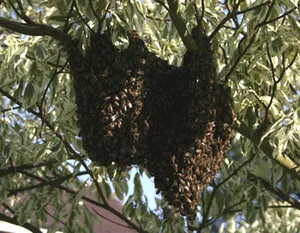
Why do I get a wasp nest every year?
If you are dealing with a wasp nest year after year, it's not because you're being singled out for irritation. It simply means your location attracts wasps, as your loft space provides a dry and accessible shelter.
Generally, older homes tend to have more frequent wasp nests due to the greater number of access points in their roof spaces compared to newer roof designs. Geographic location is also an important factor in determining wasp populations.
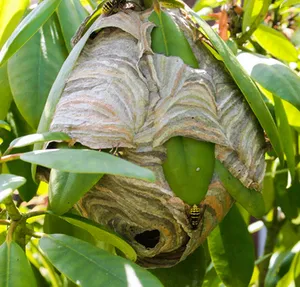
What time of year do wasps build their nests?
Queen wasps awaken from hibernation in mid-March and begin constructing their nests around mid-April. The timing of nest-building is dependent on weather conditions. Once the first worker wasps emerge, they take over the responsibility of building the nest. The nest will expand in size throughout the summer until late autumn, when it produces new queens. To spot an active wasp nest, it is advisable to wait until the beginning of June. Enough worker wasps should have hatched by this time, and there will be noticeable activity at the nest entrance.
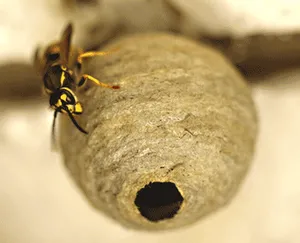
Are wasp nests dangerous?
The ferocity of each wasp colony depends on the individual nest, particularly the queen. The queen wasp determines if the nest is aggressive or calm. You can never tell, so we always err on caution and make an educated guess that every nest is aggressive!
The danger associated with wasps comes from the venom in their stings. Some people are allergic to this venom, and if stung, they can go into Anaphylactic shock. If the shock is not treated promptly, it can be life-threatening. Non-allergic individuals may also go into shock if stung many times under a sustained attack. However, the chances of this happening are relatively low. To avoid getting stung, it is best to avoid wasp nests if you are concerned about stung.
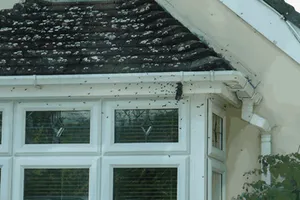
Do the local council provide wasp nest treatments?
If you have a wasp nest nearby, you can contact your local council, which might provide treatments to eliminate them. However, dealing with wasp nests might not be their top priority, and you may have to wait up to 4 weeks. Alternatively, you can contact Hampshire Wasp Control, who offer same-day wasp nest treatment services at a lower price than the local authorities.
